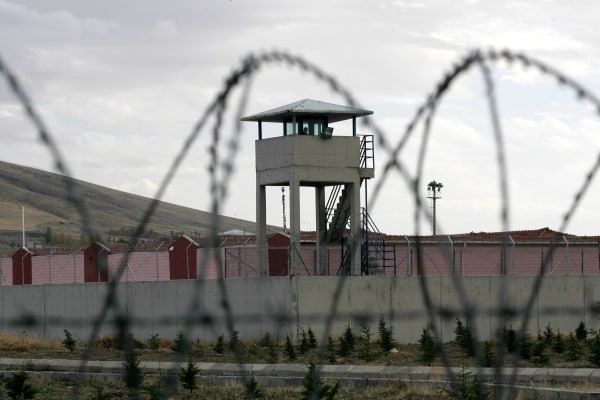Turkey to Release 38,000 Prisoners to Make Space for Coup Plotters
ISTANBUL — Turkey will release some 38,000 prisoners under a penal reform announced on Wednesday as the arrests of tens of thousands of people suspected of links to last month’s attempted coup burden overstretched jails.
The reform, extending an existing probation scheme, was one of a series of measures outlined on Wednesday in two new decrees under a state of emergency declared after the July 15 failed putsch. The government gave no reason for the reform.

Turkey’s Western allies worry President Tayyip Erdogan is using the crackdown to target dissent. Angrily dismissing Western concerns over stability in the NATO member, Turkish officials say they are rooting out a serious internal threat.
The decrees, published in the country’s Official Gazette, also ordered the dismissal of 2,360 more police officers, more than 100 military personnel and 196 staff at Turkey’s information and communication technology authority, BTK.
Those dismissed were described as having links to U.S.-based Muslim cleric Fethullah Gulen, whom Ankara accuses of orchestrating the bloody coup attempt. Gulen denies involvement in the failed putsch.
Related:Turkey’s Purge to Coup-Proof Its Military May Backfire
Under the penal reform, convicts with up to two years left in sentences are eligible for release on probation, extending the period from one year. The “supervised release” excludes those convicted of terrorism, murder, violent or sexual crimes.
To be eligible for the scheme, prisoners must have served half of their sentences. Previously they were required to have already served two thirds of their sentence.
“This measure is not an amnesty,” Justice Minister Bekir Bozdag wrote on Twitter of the penal reform. “Around 38,000 people will be released from… jail in the first stage as a result of this measure.”
He did not say why the reform was needed but Turkey’s prison population has trebled over the last 15 years. There were 188,000 prisoners in Turkey as of March, some 8,000 more than the existing capacity.
Another measure said the president could appoint as head of the armed forces any general or admiral, removing the requirement that the military chief be a top commander of the army, navy or air force. Under another move, the TIB telecoms authority will be closed.
Alongside tens of thousands of civil servants suspended or dismissed, more than 35,000 people have been detained in the purge.